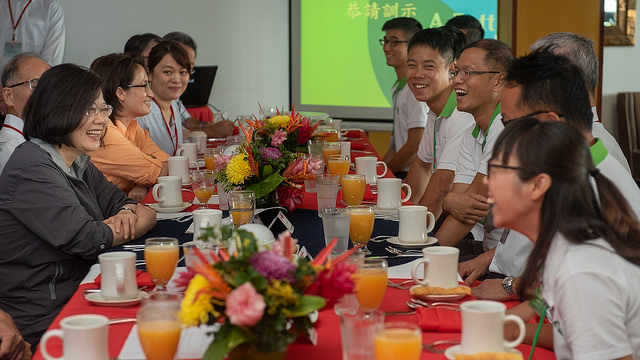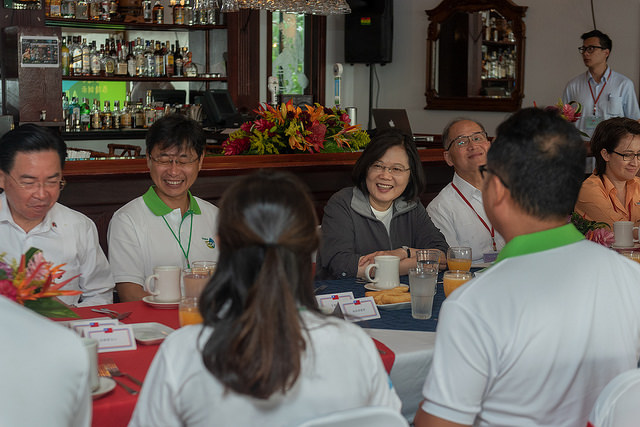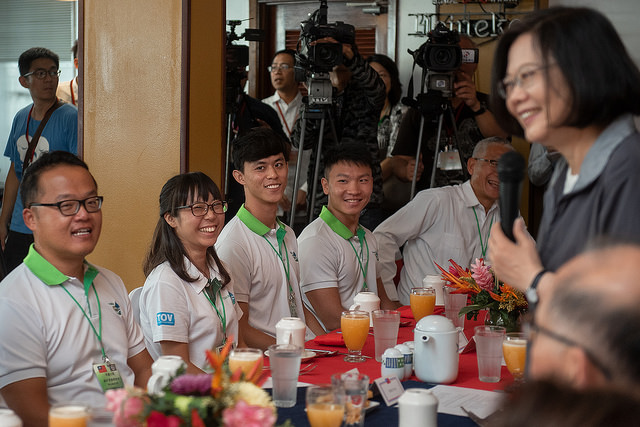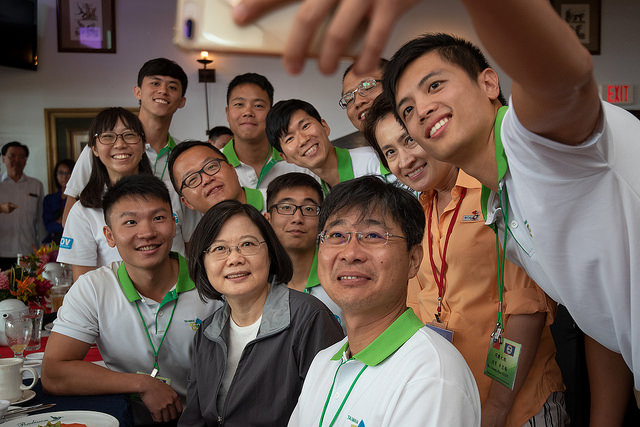News & activities
 News releases
News releases
President Tsai Ing-wen held a breakfast meeting with the Taiwan Technical Mission in Belize on the morning of August 18 (Saturday) local time (evening of August 18 Taipei time). She acknowledged and thanked the overseas technical mission members for their hard work and contributions, and said that she expects Taiwan will not only provide its diplomatic allies with needed technical assistance, but can also help them gain better employment opportunities and development.
In remarks, the president said that she had come to cheer everyone on, and to thank them for being far from home, for the sake of their own country, to live with the people of Belize, and give them assistance with their livelihoods and their nation's development. She told the technical mission members that "you are all at the front line of our diplomacy," and that she had therefore come to announce the government's decision to increase rent allowances for technicians stationed abroad and educational stipends for their children. That, she said, is not only an increase in their allowances, but is also their country's acknowledgement and gratitude for their hard work and contributions.
President Tsai pointed out that Taiwan has cooperated with other countries for a long time, particularly in our cooperation programs with our diplomatic allies in healthcare programs, or in industrial improvement projects, helping them develop improved seedlings or livestock suitable for local conditions. Taiwan's purpose, she said, is to assist its diplomatic allies and give them a better foundation for development in all aspects. Those things are indeed the strengths of our country, she said.
The president further stated that when we complete this stage, we should continue developing to the next stage; in other words, we should begin to assist our diplomatic allies, taking advantageous varieties and then developing better commercial mechanisms, along with a definite level of commercialization or industrialization. She believes that this assistance to our diplomatic allies is helpful at the technical level, and also, hopefully, after commercialization and industrialization, to creating more employment opportunities, or to providing small livestock farmers or land-tilling farmers with their own space for development in the future. "I believe this is an ability we have," she said.
President Tsai pointed out that these were matters she had discussed with heads of state or prime ministers during several recent visits. She said that they are very much anticipating our assistance in developing employment opportunities and industrial development, and that this should be the focus of our efforts in the next stage. As for public health and medical care, which is also our strength, she said, we should enhance care for remote or long-distance areas in our cooperative plans in that regard. This is what we should consider doing in the next stage.
Finally, the president said she believes that after so many state visits, we can better understand the needs of our diplomatic allies and be able to implement these plans more effectively.
National Security Council Secretary-General David T. Lee (李大維), Minister of Foreign Affairs Joseph Wu (吳釗燮), International Cooperation and Development Fund Secretary-General Timothy T. Y. Hsiang (項恬毅), and the head of the technical mission in Beliz, Mr. Lee Pin-nan (李平南) were also in attendance.












